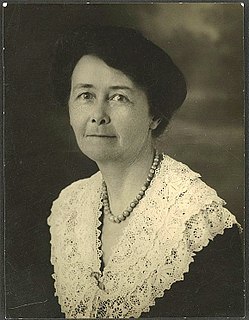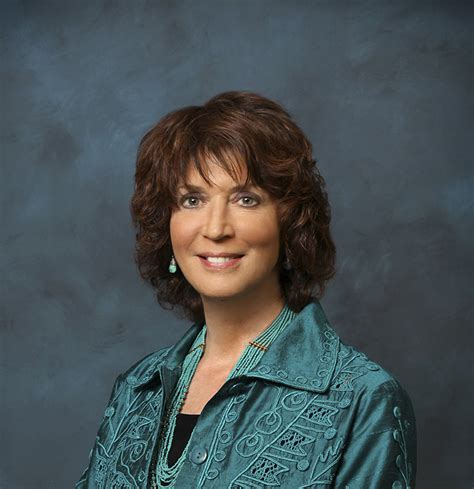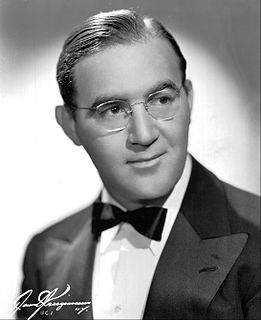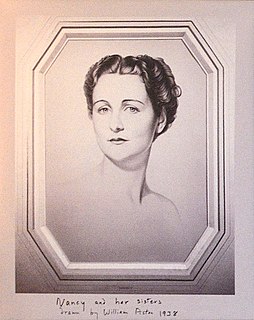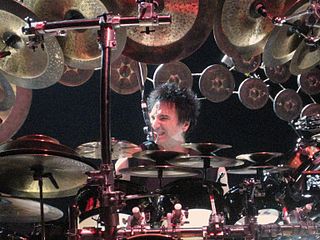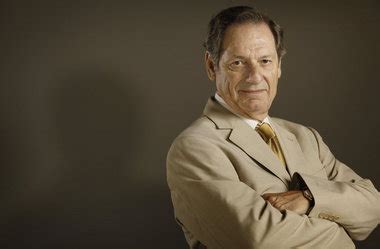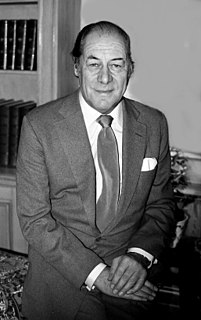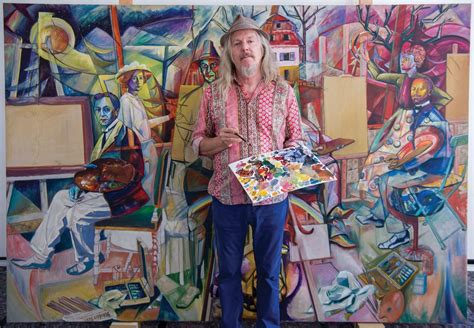Top 568 Orchestra Quotes & Sayings - Page 10
Explore popular Orchestra quotes.
Last updated on September 19, 2024.
So often people will say that I converted to the Catholic religion. This is false. Although I was raised as a Protestant, I was never baptized and had never been a member of any church. I joined the Roman Catholic Church after I had written my Mass To Hope!During the night I dreamt the entire Lord's Prayer with chorus and orchestra. I jumped out of bed and wrote down what I had heard as accurately as I could remember. Because of this event I decided that I might as well join the Catholic Church because someone somewhere was pulling me toward that end.
Fact is that I played piano and performed, as a young kid, a Mozart piano concerto with the Chicago Symphony Orchestra . Don't forget I was only eleven-years-old and to be on the stage at that age had tremendous impact on me. Basically love for classical music and performing as a kid on the big stage probably led toward this decision, which meant that music is going to be my big love but also my profession.
If the souls of lives were voiced in music, there are some that none but a great organ could express, others the clash of a full orchestra, a few to which nought but the refined and exquisite sadness of a violin could do justice. Many might be likened unto common pianos, jangling and out of tune, and some to the feeble piping of a penny whistle, and mine could be told with a couple of nails in a rusty tin-pot.
Direction is the most invisible part of the theatrical art. It's not like the conductor in the symphony orchestra performance because he's standing in front of you waiving his arms. You now what he's doing. You don't know what the director is doing unless you know a lot about theater and even then you can only deduce it. You know it when you go to rehearsal. You really know it when they are rehearsing something of yours. I learned more in the rehearsals for The Letter than I have ever dreamed of know in the theater as a critic. If it doesn't make me a better critic, I'm an idiot.
I played for my first church service when I was nine years old. I was sufficiently tall to be able to reach the pedals. The first hymn I played was Bringing in the Sheaves, and to this day I can play it in any key. I graduated to a Hammond organ a few years later when we went to another church, and then in high school came one of the loves of my life, the pipe organ. The sound of the pipe organ still gives me a thrill, whether soft strings or drowning out the orchestra as in Strauss' Also Sprach Zarathustra.
I think my first impression (of Bix Beiderbecke) was the lasting one. I remember very clearly thinking, 'Where, what planet, did this guy come from? Is he from outer space?' I'd never heard anything like the way he played-not in Chicago, no place. The tone-he had this wonderful, ringing cornet tone. He could have played in a symphony orchestra with that tone. But also the intervals he played, the figures-whatever the hell he did. There was a refinement about his playing. You know, in those days I played a little trumpet, and I could play all the solos from his records, by heart.
Paris in the early morning has a cheerful, bustling aspect, a promise of delicious things to come, a positive smell of coffee and croissants, quite peculiar to itself. The people welcome a new day as if they were certain of liking it, the shopkeepers pull up their blinds serene in the expectation of good trade, the workers go happily to their work, the people who have sat up all night in night-clubs go happily to their rest, the orchestra of motor-car horns, of clanking trams, of whistling policemen tunes up for the daily symphony, and everywhere is joy.
I had been composing just for myself, and people would say I played so orchestrally, and wondered if I thought about having someone write a piece for me for an orchestra. And I thought, I don't want someone else to write that. You know I finally had made an overhead chart of my drums and what pitches the cymbals and toms were tuned to, and what have you. And I started to compose just with what I had for my solo drumming.
If you're listening to a symphony, you're getting all the information, including the audience around you, the delay from the sides of the concert hall, the whole thing. If one of those musicians is sharply out of tune or starts to play a different piece of music than all the others in the orchestra, you immediately notice. When you analyze systems by listening, you can just listen, and you can tell whether the system is healthy or unhealthy. What I've created for you is a perfect model of how we should be listening to our stock market, rather than trying to see it graphically.
A man of intellect is like an artist who gives a concert without any help from anyone else, playing on a single instrument--a piano, say, which is a little orchestra in itself. Such a man is a little world in himself; and the effect produced by various instruments together, he produces single-handed, in the unity of his own consciousness. Like the piano, he has no place in a symphony; he is a soloist and performs by himself--in soli tude, it may be; or if in the company with other instruments, only as principal; or for setting the tone, as in singing.
Comedy is more difficult than drama. I think it's really difficult to make someone laugh because people have very different comedic sensibilities. In drama, you can get away with being a great actor and surrounded by great actors and having good writing. But in comedy you have to listen and you have to perform with a certain rhythm, because if you don't, it's like playing a wrong note in the orchestra and you can hear the off key and it will fall flat and you won't get that instant response.
I used to think that running an organization was equivalent to conducting a symphony orchestra. But I don't think that's quite it; it's more like jazz. There is more improvisation. Someone once wrote that the sound of surprise is jazz, and if there's any one thing that we must try to get used to in this world, it's surprise and the unexpected. Truly, we are living in world where the only thing that's constant is change.
When you sing opera you are very far from the people, you are onstage, and between you and the people there is the orchestra. So you have to launch your emotions very, very far. When you sing pop, you are singing very close - the microphone is very close to your mouth. You can whisper your emotions into the microphone.
I have had much pleasure in working with Orphei Drängar during my time as chief conductor of the Gothenburg Symphony Orchestra, and I consider OD to be one of the most brilliant men´s choirs in the world. The singers are highly professional and their repertoire is of a very wide range, but then they have been trained for years by Eric Ericson, the world´s leading choir conductor. I also admire the strength and the beauty of their voices. OD is an extraordinary powerful choir!
I trust microphones, speakers and recordings less and less, and no longer buy into the idea that I can recreate at home, or in my earphones, the experience of hearing live acoustic instruments. The orchestra is already a set of speakers that react differently to each player, each room and each concert - it's that high level of uncertainly and unrepeatability that I like. The music is just soaked into the walls of a room straight from the instruments - and it's a one-off deal. The alternative - left speaker, right speaker - is kind of a compromise.
A wonderful, warm, positive individual who exhibits the values that are prerequisite to a significant faculty post in higher education, I think that it is an absolutely extraordinary and bold career move that Darwin has made in leaving the Orchestra and embarking on the trajectory of a solo performer/educator. And what a marvelous thing it is for Detroit to be able to welcome home a successful native son - one in whom the community can take pride, and one who will serve as an inspiration to a younger generation of aspiring performers eager to make their mark in the world.
Existence cares. When I say God cares I mean that existence cares for you, it is not indifferent. Let this be the foundation of your sannyas and then the temple can be raised very easily. It is easy to raise the temple once the foundation is rightly put. This is the foundation stone: remember that existence loves you, cares about you, is concerned about you; that you are not alienated, that you are not a stranger, that you are part of this great symphony, this orchestra, this celebration that goes on and on and knows no ending.
I sometimes like to think of God as a great symphony and the various spiritual paths as instruments in an orchestra. The gift that you have is like music waiting to be played. You need only to find the instrument that will best bring it out. You alone can never play all the instruments, and your music might not find voice in all the instruments. All you can do is find the instrument that suits you best, play it as well as you can, and add your music to the great symphony of divine creation.
Thank God for that. You can shut them, say, 'Hold on a moment.' You play God to it. But who has ever torn himself from the claw that encloses you when you drop a seed in a TV parlour? It grows you any shape it wishes! It is an environment as real as the world. It becomes and is the truth. Books can be beaten down with reason. But with all my knowledge and scepticism, I have never been able to argue with a one-hundred-piece symphony orchestra, full colour, three dimensions, and I being in and part of those incredible parlours.
Our dead brothers and sisters still live for us and bid us think of life, not death-of life to which in their youth they lent the passion and glory of Spring. As I listen, the great chorus of life and joy begins again, and amid the awful orchestra of seen and unseen powers and destinies of good and evil, our trumpets sound once more a note of daring, hope, and will.
Originally I had a block about appearing in a musical. I went to a voice teacher for a while, but that did no good. My range is about one and a half notes. I ended up talking the musical numbers, which was revolutionary at the time. The lyrics are extremely intricate. They move along like a precisely acted scene. If you miss a word - heaven help you - the orchestra rattles past like an express train, and you've got to run like the devil to catch up.
Use your eyes as if tomorrow you would be stricken blind. Hear the music of voices, the song of birds, the mighty strains of an orchestra as if you would be stricken deaf tomorrow . . . Smell the perfume of flowers, taste with relish each morsel as if tomorrow you could never smell and taste again. Glory in all the facts of pleasure and beauty which the world reveals to you.
Deep inside I feel that this world we live in is really a big, huge, monumental symphonic orchestra. I believe that in its primordial form all of creation is sound and that it's not just random sound, that it's music. You've heard the expression, music of the spheres? Well, that's a very literal phrase. In the Gospels, we read, "And the Lord God made man from the dust of the earth and breathed into his nostrils the breath of life and man became a living soul." That 'breath of life' to me is the music of life and it permeates every fiber of creation.
Today's parents have little authority over those others with whom they share the task of raising their children. On the contrary,most parents deal with those others from a position of inferiority or helplessness. Teacher, doctors, social workers, or television producers possess more status than most parents.... As a result, the parent today isa maestro trying to conduct an orchestra of players who have never met and who play from a multitude of different scores, each in a notation the conductor cannot read.
True drama can be conceived only as resulting from the collective impulse of all the arts to communicate in the most immediate way with a collective public... Thus especially the art of tone, developed with such singular diversity in instrumental music, will realize in the collective artwork its richest potential -- will indeed incite the pantomimic art of dancing in turn to wholly new discoveries and inspire the breath of poetry no less to an undreamed-of fullness. For in its isolation music has formed itself an organ capable of the most immeasurable expression - the orchestra.
As you get older - for example, in our band we have members of our orchestra, like Carlos Enriquez and Ali Jackson and Walter Blanning. I taught them when they were in high school, and now they teach me.I'll regularly call Ali and say, "Man, can you break this rhythm down for me?" Or Carlos was actually our music director in Cuba, and he's been instrumental in a lot of my education, and I started to develop a saying with them, because they tease me all the time - you get older, you have that familiar relationship - I say, "You have to follow your young leadership, too."
Every philharmonic orchestra merely interprets the composer. My goal was to create new music by that composer. In doing so, I wanted to find the painter's creative center and become familiar with it, so that I could see through his eyes how his paintings came about and, of course, see the new picture I was painting through his eyes - before I even painted it.
There are two kinds of music. One comes from the strings of a guitar, the other from the strings of the heart. One sound comes from a chamber orchestra, the other from the beating of the heart's chamber. One comes from an instrument of graphite and wood, the other from an organ of flesh and blood. This loftier music I speak of tonight is more pleasing than the notes of the most gifted composers, more moving than a marching band, more harmonious than a thousand voices joined in hymn and more powerful than all the world's percussion instruments combined. That sweet sound of love.


